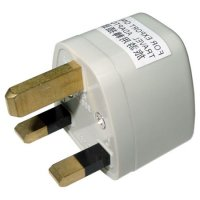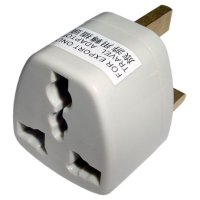- DO I NEED A VISA TO TRAVEL TO GHANA?
- Travelers must obtain a visa before traveling to Ghana. However, depending on your nationality, you may be exempt from this requirement. Please verify your eligibility with your travel advisor.
- PASSPORT
- To enter Ghana, your passport must be valid for at least six months beyond your arrival date.
- DO I NEED VACCINATION SHOTS TO TRAVEL TO GHANA?
- To travel to Ghana, you must have a Yellow Fever vaccination and keep the certificate with your passport, as it may be requested for inspection upon entry. For the latest information on other necessary vaccinations, please consult your doctor, a travel clinic, or your local public health department.
- DO I NEED TRAVEL INSURANCE?
- Certainly! We advise ensuring you have sufficient personal insurance coverage for your trip.
- CAN I ACCESS ATM’S TO WITHDRAW MONEY?
- Access to Automated Teller Machines (ATMs) can vary significantly depending on the city, or town you are in, and technical issues with disbursing money are common. It is recommended to withdraw your spending money upon arrival in the capital city of your destination. Alternatively, your guide can help arrange for money to be exchanged at local Forex Bureaus and banks during your trip.
- WEATHER?
Ghana experiences a tropical climate with two main seasons: the wet season and the dry season.
- Wet Season:In the north, the rainy season lasts from April to mid-October. In the south, it extends from March to mid-November. The south also has two distinct rainy periods: April to June and September to November.
- Dry Season:The dry season occurs from November to March, characterized by lower humidity and the Harmattan winds, which bring dry and dusty air from the Sahara.
- WILL MY DRIVER OR TOUR GUIDE ACCOMPANY ME THROUGHOUT THE ENTIRE TRIP?
- Our drivers and guides are available 24/7 during your tour. On standard tours, they are with you as long as needed and may stay at the same or nearby accommodations. You will receive their personal contact number and a 24/7 emergency contact number. For safety, our guides and drivers are on duty 24/7, though they may leave late in the evenings to sleep nearby. Adult travelers can expect their guides to be with them as long as needed each day, while student and large groups will have their guide nearby throughout the tour.
- PLUGS AND SOCKETS
- Electric devices from the United States are designed to operate at 120 volts, while the power grid in Ghana uses 230 volts. This significant difference means you’ll need to take some extra precautions before your trip.
- The good news is that many modern devices can automatically adjust to different voltage levels and will work without issue. For example, most mobile phone chargers are multi-voltage. However, it’s important to double-check your devices to ensure they’re compatible with Ghana’s voltage. Always verify the voltage rating of your equipment to avoid any potential problems. High-power devices typically cannot handle different voltages due to the high currents they require. This includes items whose primary function is generating heat or cold, such as hair dryers, baby bottle warmers, and kettles. In contrast, modern low-power devices, like USB chargers and laptop chargers, are usually designed to automatically detect and adapt to different voltages.
- Below are the list of adapters you can use in Ghana


- WILL MY CELLPHONE WORK WHEN I ARRIVE?
- If you wish to continue using your phone with your home country number while in West Africa, the first step is to contact your service provider to set up international roaming. International roaming allows you to connect to local networks in the country you are visiting, enabling you to make calls, send texts, and use data as if you were still at home. However, it’s important to note that international roaming can be quite costly, especially when it comes to data usage and long-distance calls. Depending on your service provider, you may face high fees for accessing local networks, so it’s wise to check the rates and consider whether this option is suitable for your needs.
- Alternatively, a more cost-effective option is to use a local SIM card during your stay. Our office and your guide can assist you in arranging a local SIM card that will allow you to make local calls and use mobile data at much lower rates. This option is often significantly cheaper than international roaming. However, before using a local SIM card, make sure your phone is unlocked, meaning it is not restricted to a specific network from your home country. If your phone is locked, you may not be able to use a local SIM card.
- Once you have a local SIM card, it will need to be registered in order to comply with local regulations. After registration, you can enjoy more affordable calls, texting, and internet access throughout your time in Ghana, without the hefty charges of international roaming. This option provides a more flexible and economical way to stay connected during your travels.
PACKING TIPS: WHAT TO BRING AND HOW TO ORGANIZE IT
Please note that everyone has unique needs, so this is just a suggested packing list.
- ITEMS FOR YOUR CHECKED LUGGAGE
- Underwear
- Socks
- Pants
- Shorts
- Tee Shirts
- Bathing Suit/Bikini
- Long-sleeved shirt
- Sneakers/hiking shoes
- Sandals
- Slippers
- Rain jacket/Umbrella
- Sunglasses
- Hat
- Flashlight
- Shampoo
- Soap
- Tooth paste & tooth brush
- Deodorant
- Shaving cream & razor
- Feminine hygiene products
- Bugspray
- Sunscreen
- ESSENTIALS FOR YOUR CARRY-ON BAG
- Valid passport with an up-to-date Ghana visa
- Photocopy of your passport
- Yellow fever vaccination card
- Phone and chargers
- Optional: Camera
- Medications if any
- Water bottle
- Money, Wallet, Cards, etc

